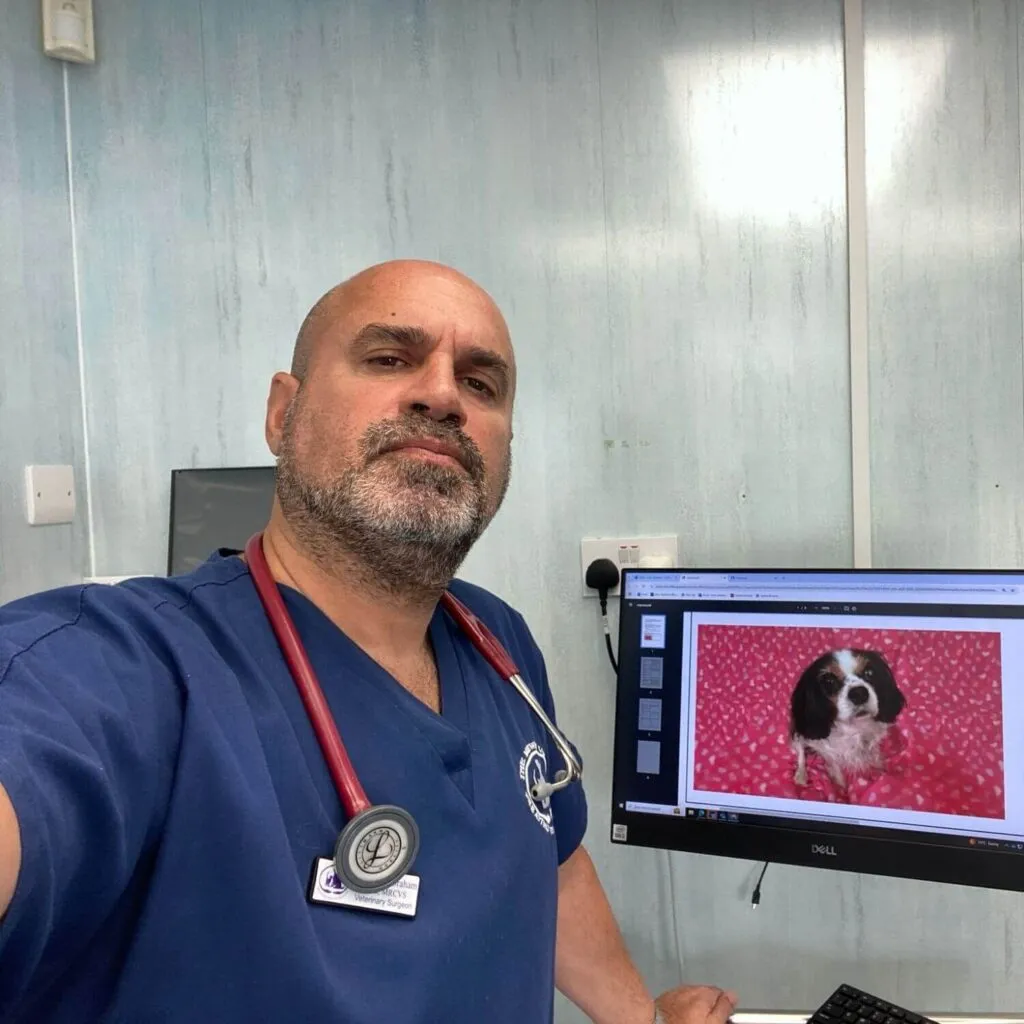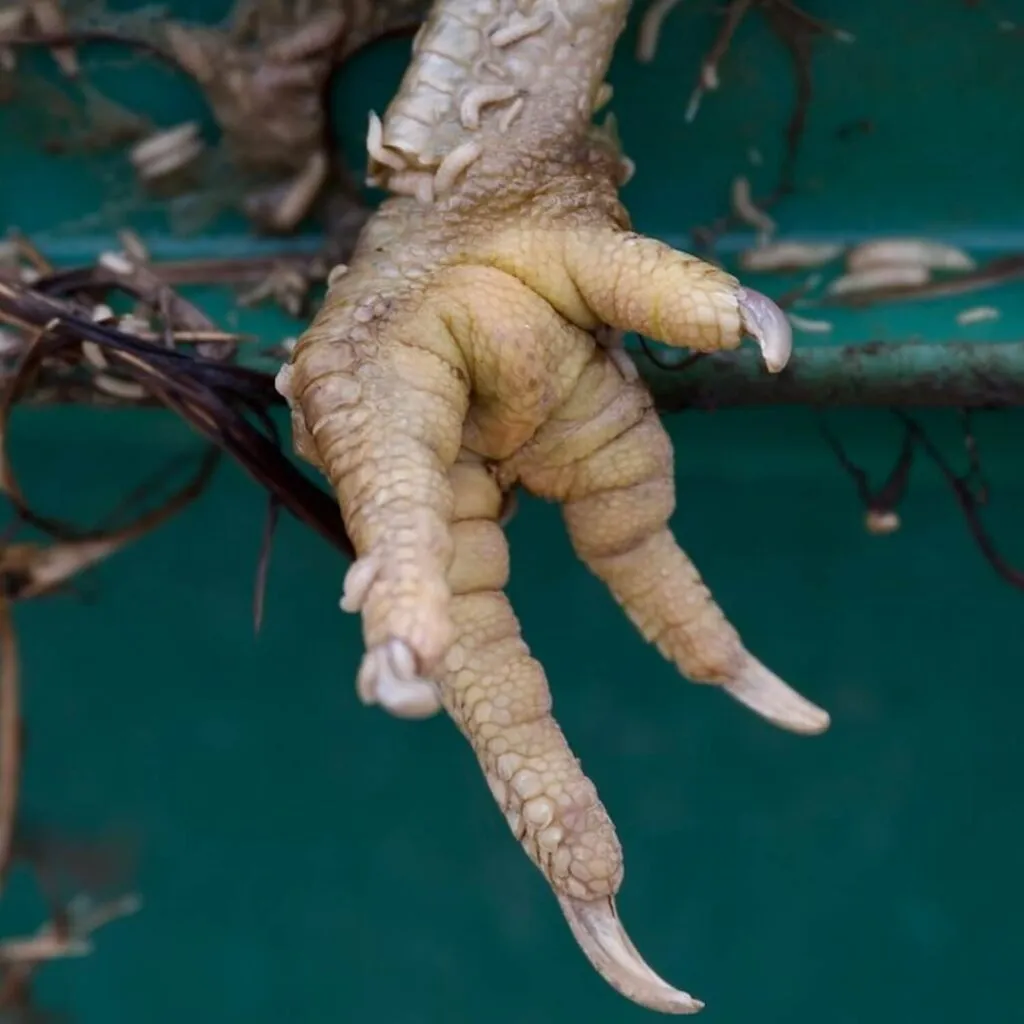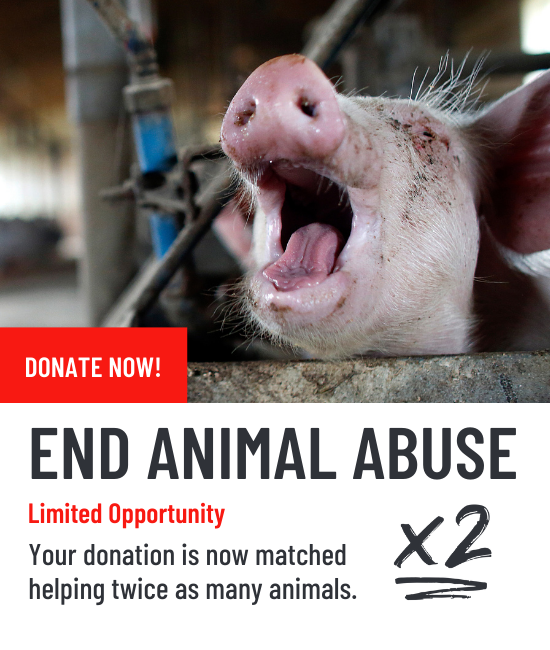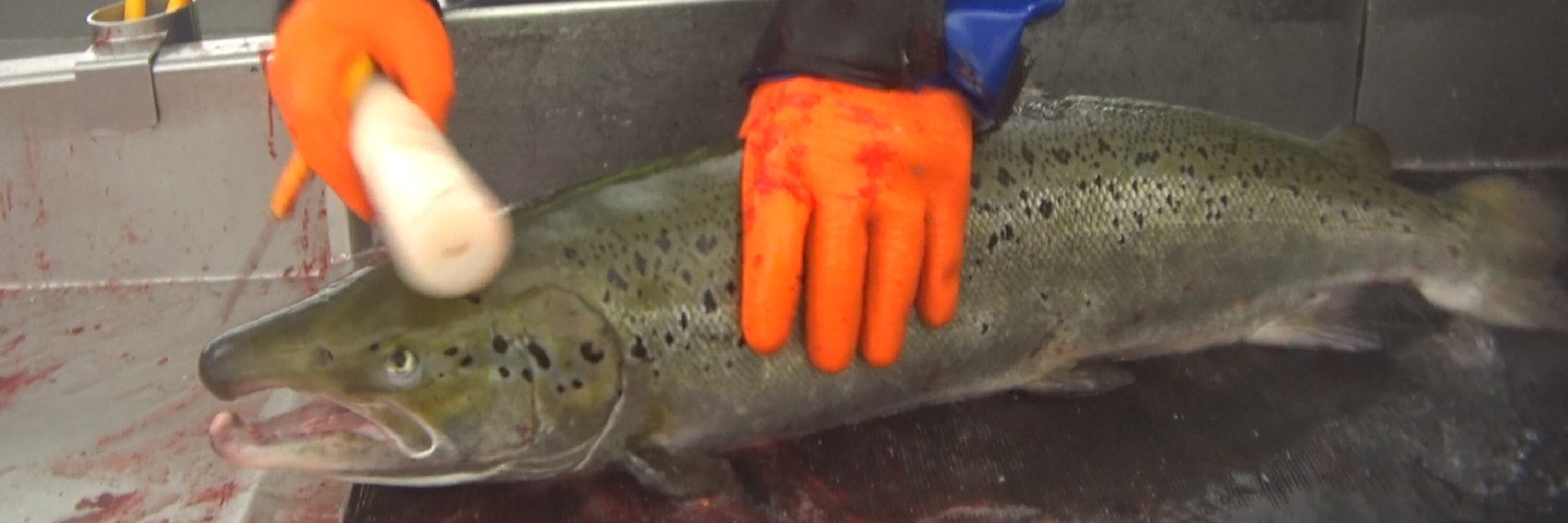
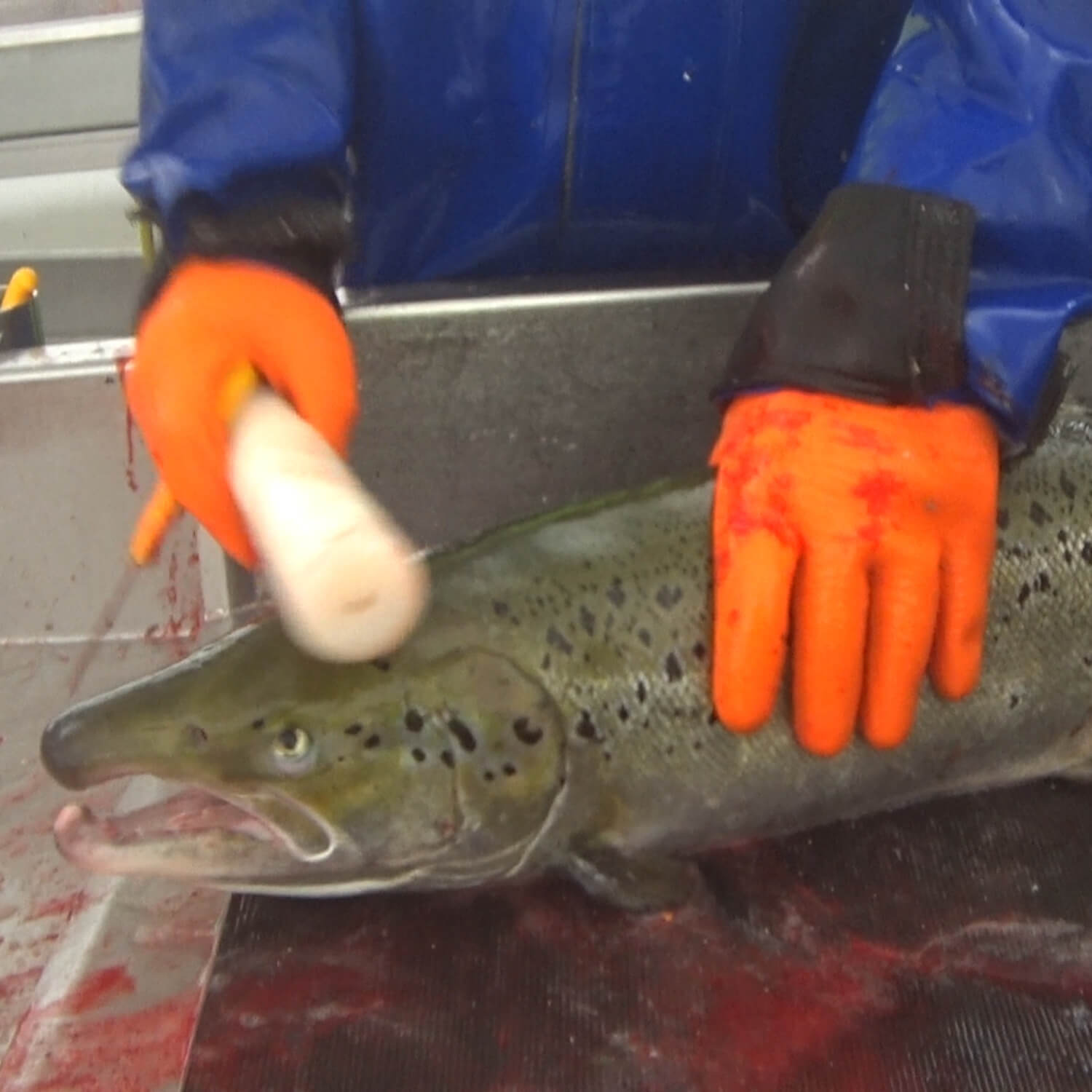
The Life and Death of Farmed Fish

In the UK, up to 77 million fish are farmed and killed every year. That’s approximately 8,790 fish every hour.
Many species of wild aquatic animals have been fished almost to extinction. Because of this, it is most likely that the fish that you see packaged in your supermarket have come from fish farms.
But what is life really like for farmed fish? Read on to learn the truth about how fish live and die in fish farms.
How are fish farmed?
Fish farming, also known as aquaculture, involves raising fish for slaughter. Fish farms are basically floating factory farms, where fish live in cramped cages or tanks and cannot carry out many of their natural behaviours.
Even though farmed fish are bred for human consumption, fish farming still contributes to wild species loss. This is because millions of wild fish like mackerel, anchovies and sardines are fished to feed the farmed animals.
Farmed fish face many challenges in their brief lives, including stressful crowding in cages, cannibalism, infectious diseases, lice infestations, on-farm mortality and cruel and prolonged suffering at slaughter.
Cramped Conditions Cause Stress and Cannibalism
Farmed fish are kept in sea pens, which are essentially big cages floating in the ocean. Hundreds of thousands of fish can be crammed into these pens, unable to swim freely and explore.
Salmon and trout are naturally solitary animals, who usually swim away from each other for fear of cannibalisation. Yet, it is not possible to engage in this natural behaviour in fish farms, so the fish may school together.
We witnessed this in late 2022, when we filmed salmon and trout farms off the coast of Scotland using drones.
Commenting on our footage, former Head of Research at the Aquatic Life Institute and fish researcher, Mark Borthwick said: “Schooling is not a normal behaviour for these solitary predators so they are likely swimming away from one another for fear of cannibalism, the result of a highly unnatural, stressful environment.”
Besides causing stress, crowding in these sea pens can lead to aggressive behaviours like cannibalism.
“When not given enough space, Atlantic salmon become stressed and aggressive”, explains Dr Lynne Sneddon, from the Department of Biological and Environmental Sciences at the University of Gothenburg.
“They are territorial when young and migrate large distances as adults. These cages are essentially tanks that confine the fish and prevent them from carrying out some of their natural behaviours.”
Fish Farms Spread Diseases and Lice Infestations
There is a greater risk of infectious diseases spreading among farmed fish, due to the confined and unnatural conditions they are kept in.
Many fish farms also suffer from infestations of sea lice which eat the fish’s skin while they’re alive.
In an attempt to fight sea lice, fish farmers resort to using chemicals or other rough treatments. They may also use species of so-called ‘cleaner fish’ who eat the sea lice from the salmon’s skin. But there are few laws to protect these cleaner fish and they will be killed along with the salmon when they are slaughtered.
Many fish die from sea lice infestations or from the harsh chemical treatments used to remove these lice, as well as from infectious diseases.
The Hidden Victims of Fish Farming
Many farmed fish die prematurely due to the unnatural conditions they are kept in.
According to a report from industry membership body Salmon Scotland, 2.8 million farmed salmon died on-farm in Scotland in September 2022.
And this isn’t an isolated incident. The salmon industry in Scotland has been reporting these kinds of figures for a long time, and the number of deaths on farms is only growing.
In January 2023, an Animal Equality UK exposé – alongside data gathered by $camon $cotland – revealed that nearly 15 million farmed salmon died prematurely in the UK between January and November 2022. This figure is almost double the recorded early salmon deaths in 2021 and triple that of 2020.
According to industry reports, an estimated 20 to 30 million farmed salmon may be dying on-farm on average each year.
In late 2022, an Animal Equality investigator filmed the moment when workers at a Scottish fish farm were fishing shocking quantities of dead salmon out of the water in a huge net.
There are many factors that contribute to this staggering death rate, including sea lice infestations and chemical treatments, severe weather conditions, disease, injuries, predation, and algal blooms.
How Are Farmed Fish Killed?
The fish who survive these unnatural and stressful conditions suffer an equally cruel fate when it is time for them to be slaughtered.
Farmed fish are sucked up out of the sea pens through a complicated pipe system onto boats, and are either slaughtered at sea or transported for slaughter on land.
Fish have incredibly sensitive bodies that are easily bruised or injured. Even what would feel like a gentle touch to humans can cause pain for fish.
Before they even enter the slaughter process many fish are already battered and bloody, or in worst cases dead, from being sucked out of the sea pens.
Animal Equality UK has filmed the slaughter of salmon and trout on-land and at sea, and what we found may shock you.
Scottish Salmon Slaughterhouse, 2021
Undercover footage from Animal Equality UK revealed animals suffering from prolonged pain in a typical salmon slaughterhouse, operated at the time by The Scottish Salmon Company, now owned by Bakkafrost.
We witnessed ineffective stunning in this slaughterhouse, meaning that many fish were killed while conscious or had to be repeatedly bludgeoned by workers to stun them before killing.
Workers even cut and tore the salmons’ gills while they were still conscious. Can you imagine how painful this must be for these sensitive animals?
Salmon And Trout Slaughtered On Boats, 2023
In January 2023, we released shocking footage which shed new light on the secretive Scottish aquaculture industry. Using drones, Animal Equality’s investigators were able to film boats slaughtering salmon and trout at farms off the coast of Scotland.
We found a number of concerning incidents, including failure to stun fish properly, fish being violently thrown and fish left to suffocate.
Both farms that we visited are certified by a number of accreditation schemes. Between the two sites that we filmed at, accreditations included RSPCA Assured, GlobalG.A.P., Ikejime Quality, Label Rouge and Friends of the Sea.
Despite these credentials, the footage we obtained within these facilities is a far cry from the high standard boasted by the companies and accreditation schemes alike.
What Laws Protect Farmed Fish?
Scientists have confirmed that fish feel pain and suffer, but these sensitive animals are still awarded few legal protections.
According to the Animal Welfare Act (2006), fish are protected against ‘unnecessary suffering’ and farmers are required to ensure that their ‘needs are met’.
However, the law fails to provide specific rules and obligations. This leaves room for interpretation of what ‘unnecessary suffering’ means. In practice, this means fish can suffer prolonged and incredibly painful deaths and nothing meaningful is done to stop it.
There are also currently no species-specific requirements as to how fish should be transported, stunned or killed.
In 2021, the Government admitted that there are no routine checkups on fish welfare at slaughter – when fish are most vulnerable to suffering. Following Animal Equality’s investigation in a Scottish salmon slaughterhouse, the Scottish Government committed to changing this by implementing welfare-oriented inspections into Scottish salmon abattoirs. However, this was for one year only and did not extend across the UK. And, without specific laws, fish will continue to be left vulnerable to extreme abuse.
Had Animal Equality not carried out an investigation into the industry, I very much doubt the suffering of these particular aquatic animals would have ever come to light. We should not be relying on non-profits to carry out what is essentially a public service – it’s the UK Government’s duty to protect the animals killed for human consumption and, currently, it is failing to carry out this basic duty of care.
Dr Lynne Sneddon, world-renowned aquatic animal expert, University of Gothenburg
With millions of fish farmed in the UK, we cannot continue to rely on undercover investigations to expose welfare issues. It is the Government’s duty to the animals trapped in this cruel system and to consumers to closely monitor these slaughterhouses, ensuring that they comply with the existing legal requirements. Currently, the Government is failing in its duty.
To address this, Animal Equality is urging the Government to put in place species-specific legislation, make inspections mandatory (both announced and unannounced), and to install CCTV cameras in fish slaughterhouses across the UK.
How You Can Protect Fish
The good news is that you can make a difference for farmed fish right now, by choosing to leave fish off your plate.
Why not try some delicious plant-based recipes in our free cookbook? Check out our recipe for smoked “salmon” on Page 11!
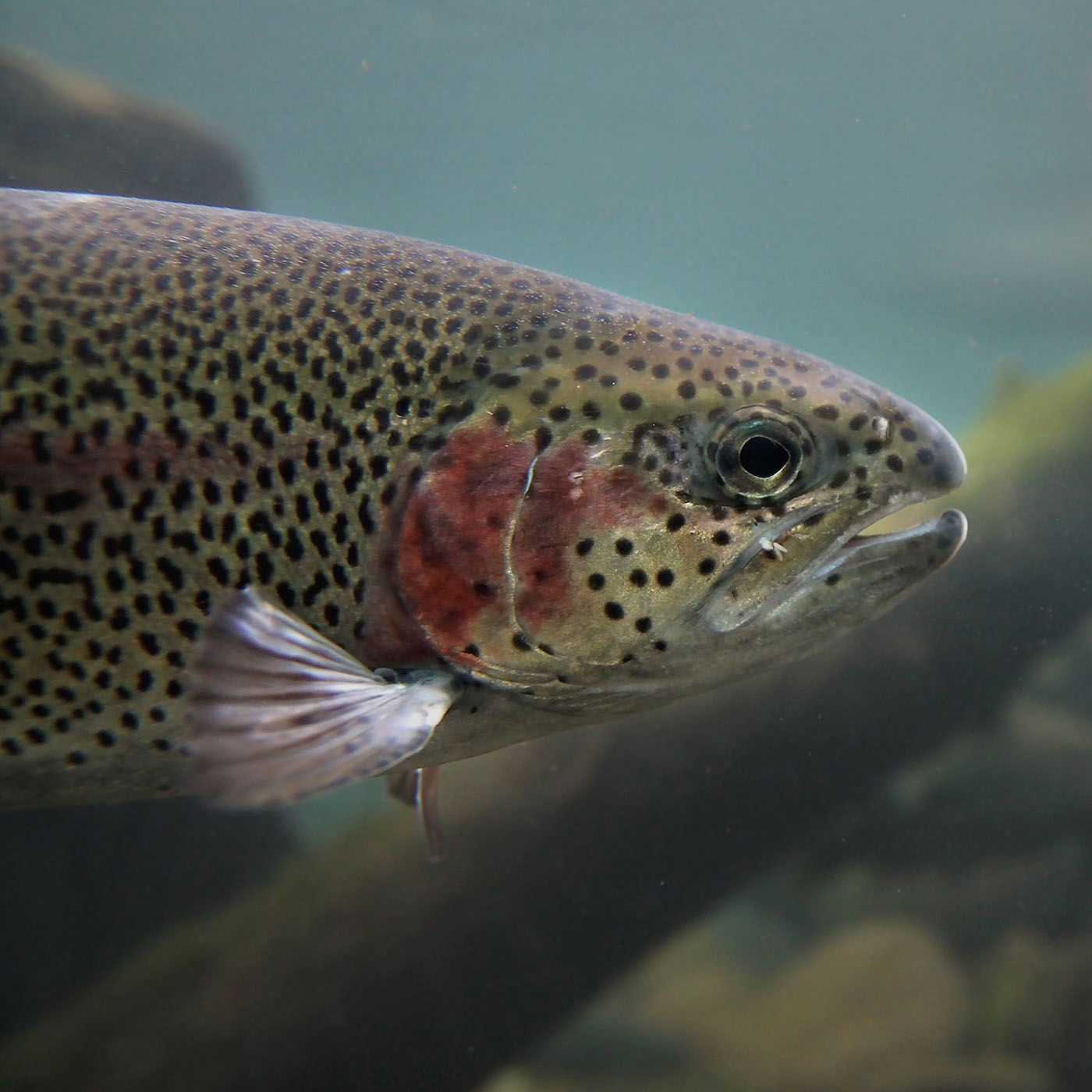
Protect Fish
Scientists confirm that fish feel pain and suffer. Protect these sensitive beings by choosing plant-based alternatives to animal food products.
Together, we can also demand that fish receive stronger protections in UK law.
Animal Equality’s investigations have shown fish being slaughtered without effective stunning, meaning their gills are cut and they bleed to death while they are conscious. This must stop.
Fish feel pain and can suffer, and there should be laws in place to punish those who hurt them in the cruellest ways.
That’s why we are urging the Government to introduce stronger and more species-specific protections for fish, including installing CCTV cameras in fish slaughterhouses across the UK.
We need your help to create a world where these often misunderstood animals are treated with the respect they deserve. Will you help fish by signing our petition today?
It only takes a few seconds, and your signature could be the final push we need to tip the odds in favour of fish!
Recommended
